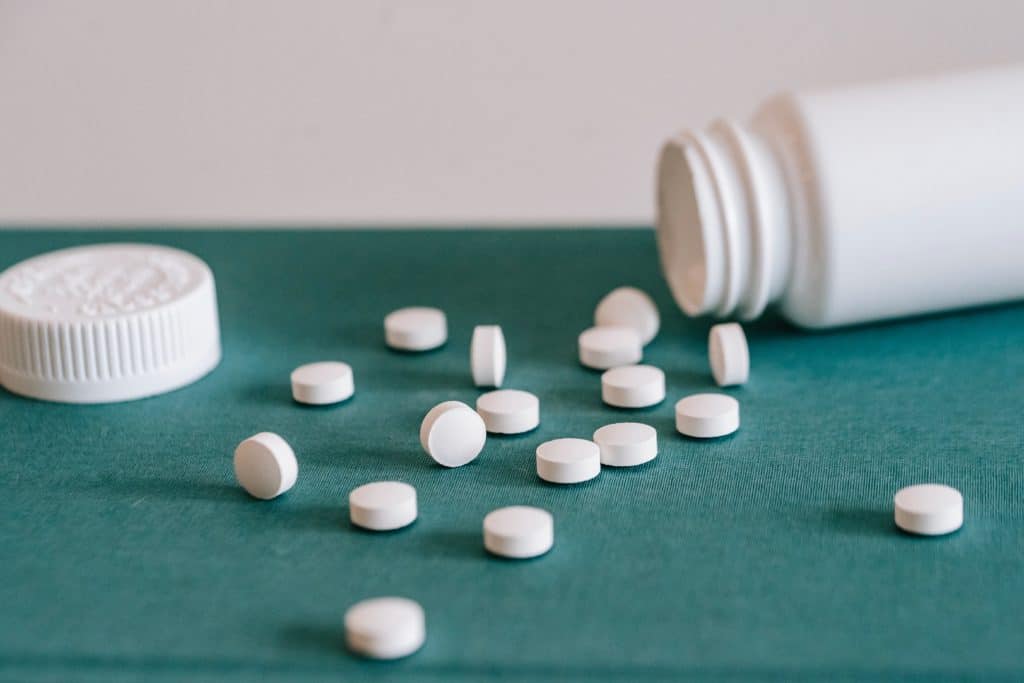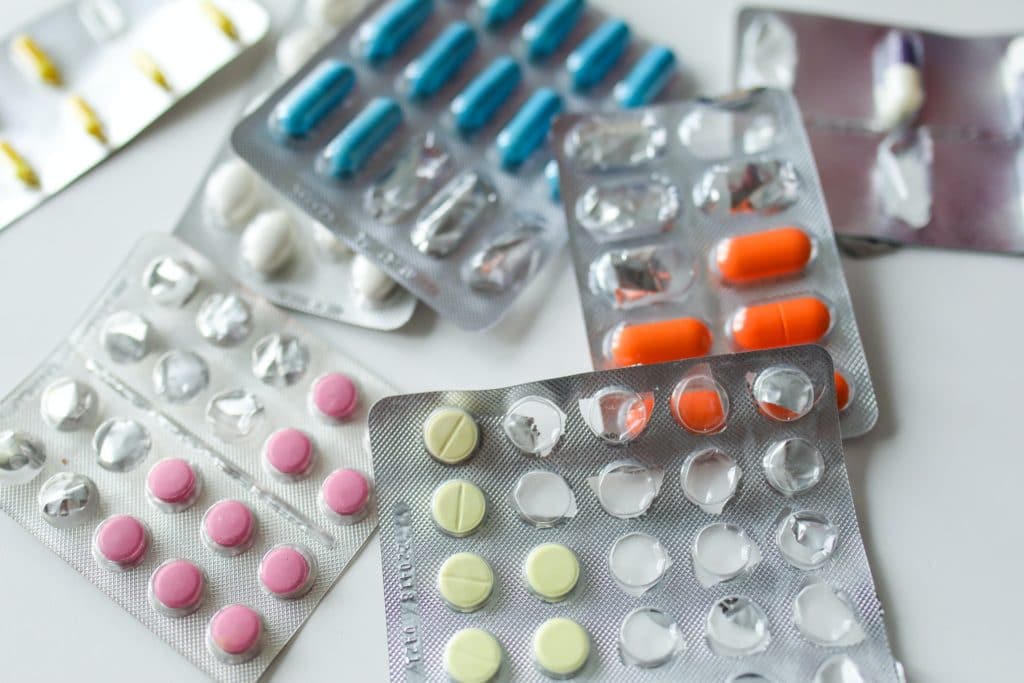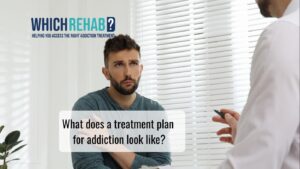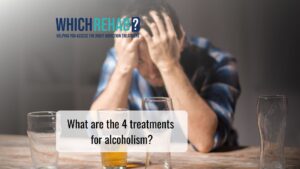Prescription painkiller addiction, also known as opioid use disorder or substance use disorder, is a serious public health concern. Opioid painkillers are commonly prescribed to manage moderate to severe pain. However, their potential for abuse and addiction is significant.
Individuals may develop a dependence on these medications, even when taken as prescribed, leading to the misuse of the drugs for their euphoric effects and the feelings of pleasure they produce.
Read our guide on addiction to prescription painkillers to find out the reach of this debilitating dependency.

What Are Prescription Painkillers?
Prescription painkillers are opioid-based drugs that are prescribed to release an individual from acute or chronic pain. They are used in a lot of cases as they contain chemicals that can relax the body and quickly relieve pain.
Some common opioids include:
Despite offering pain relief, prescription opioids are also known to produce a warm fuzzy feeling which can increase the risk of addiction as users may feel like many stresses, worries and pains are washed away with the drug.
ARE YOU SUFFERING FROM PRESCRIPTION PAINKILLER ADDICTION?
Our team of rehab and addiction specialists are on hand to talk to you day or night. Let us help you take back control.
How does a prescription drug addiction develop?
Following the receipt of the initial opioid prescription, addiction typically develops as a result of a complex interplay of various factors. Here are some common contributing risk factors:
Prescription for Pain Management
Many individuals legitimately receive prescription painkillers to manage acute or chronic pain. However, the initial use of opioids can sometimes transition into misuse and dependence.
Changes in Brain Chemistry
Opioid painkillers bind to receptors in the brain and spinal cord, affecting the perception of pain and producing feelings of euphoria. Continued use can lead to changes in the brain's chemical structure, reinforcing the desire to use the drug.
Growing
Tolerance
Over time, the body may develop tolerance to the pain-relieving effects of opioids, requiring higher doses to achieve the same level of relief. This can increase the risk of misuse and escalation to opioid addiction.
Psychological Factors
Individuals may be more susceptible to addiction due to underlying psychological factors such as stress, trauma, depression, or anxiety. Opioids can provide temporary relief from emotional pain, leading to a reliance on drugs for emotional regulation.
Genetic Predisposition
There is evidence suggesting a genetic component in addiction susceptibility. Individuals with a family history of substance abuse may be more prone to developing addiction.
Social and Environmental
The availability of prescription opioids, social influences, and environmental factors can contribute to the development of addiction. Easy access to prescription medications, either through one's prescription or diversion, increases the risk.
Unintentional Escalation
Some individuals may unintentionally escalate their use of prescription painkillers. For example, they might take a higher dose than prescribed, use the medication more frequently, or continue use beyond the prescribed period of time.
Symptoms of Prescription Drug Addiction
There are clear warning signs of addiction to look out for and identify if you or someone you care about is addicted to prescription painkillers.
If you find yourself thinking about your medication a lot, this is a common symptom to addiction. This coincides with planning when you can take your next dose or constantly thinking about how many tablets you might have left. Additionally, if you are taking more medication than what your doctor is prescribing to you daily, this is a clear sign that a problem is prevalent. Furthermore, if you’ve been taking prescription opioids for a prolonged amount of time, there’s always the possibility that you might be addicted as you may have built up a drug dependence on the drug without realising it.
Other symptoms of prescription pain medicine addiction include:
- Visiting multiple doctors in an attempt to obtain several prescriptions for painkillers
- Stealing or ‘borrowing' painkillers
- Continuing to take prescription painkillers even after the pain for which they were prescribed has subsided
- Feeling as though you want to stop taking painkillers but finding that you are unable to do so
- Focusing more and more time on obtaining, using and recovering from the effects of painkillers
- Depression
- Slurred speech
- Anxiety
- Feelings of shame, guilt and hopelessness
- Intense mood swings
- Lying to loved ones about the extent of your painkiller use
- Social withdrawal
- Finding that you only tend to associate with other drug addicts
- Possessing syringes, needles, and other paraphernalia related to injecting painkiller drugs
Any opioid drugs have the risk of becoming addictive depending on the length of time and personal history of substance misuse. GPs can’t measure the amount of pain an individual is in and therefore it can often be an easy mistake to overprescribe to a patient.
For those in chronic or acute pain, the relief that taking prescription opioids brings can become addictive quite easily. Opioids encourage the release of endorphins which muffle the perception of pain and boost the feeling of pleasure. When this feeling wears off, you might find yourself craving the feeling again, this is usually how the path towards opioid use disorder begins to form and may lead to a risk of overdose.
Is it possible to overdose on prescription drugs?
Yes, it is possible to overdose on prescription drugs. An overdose occurs when an individual takes a quantity of medication that exceeds the body’s ability to metabolise and process it safely. This can be an accidental overdose, such as when a person takes too much of a prescribed medication in an attempt to relieve symptoms or experiences an adverse reaction to a drug interaction.


Opioid medicines, benzodiazepines, and certain pain medications are particularly associated with overdose risks. Symptoms of a prescription drug overdose can vary depending on the specific medication but may include respiratory distress, confusion, seizures and unconsciousness. In some tragic cases, opioid abuse can lead to a fatal overdose. Overdosing on prescription drugs is a serious medical emergency that requires immediate attention.
If there is suspicion of an opioid overdose, emergency medical services should be contacted, and the individual should be taken to the nearest hospital for prompt assessment and intervention. It is crucial for individuals to take medications only as prescribed by their healthcare provider and to communicate openly about any concerns or side effects to mitigate the risk of overdose.
BREAK FREE FROM ADDICTION
It can feel hopeless falling into the pit of addiction. Don't struggle alone, help is at hand.
Withdrawal Symptoms From Prescription Painkiller Addiction
If you are addicted to prescription pain medicines it’s very hard to come off them because if you stop taking them immediately you can suffer from unpleasant and painful withdrawal symptoms. The symptoms of withdrawal that you experience will vary depending on the level of withdrawal you are going through.
You experience withdrawal symptoms because prolonged use of the drugs changes your nerve receptors making them dependent on the drug. Withdrawal symptoms occur in the absence of the drugs as this is your body’s physical response to missing something that it has become used to.
Early symptoms of physical dependence include:
- Restlessness
- A runny nose
- Anxiety
- Yawning frequently
- Muscle aches
Symptoms tend to worsen after the first day you stop taking prescription painkillers completely.
These include:
- Diarrhoea
- High blood pressure
- Rapid heartbeat
- Nausea and vomiting
- Possible blurry vision
It’s important to consider that the severity of your addiction will dictate the level of your withdrawal symptoms.
Treatment Options For Painkiller Addiction
If you’re suffering from prescription drug addiction, Which Rehab can help you find the right treatment and rehab program for you. Working with the best quality rehabs UK-wide, we are committed to helping our patients overcome this dangerous addiction. We understand that initially, the hardest part is admitting that you have a serious problem and need help. If a friend or a loved one is struggling to accept they have a problem with prescription painkillers, intervention helps to successfully break the denial they have. Once you have overcome this first hurdle, you can begin to get your life back on track.
The most common treatment plan for misuse of prescription opioids addiction is a detoxification process. During the detox process, you will stay in a medically controlled environment where all traces of the painkiller will be removed from your system. As previously mentioned, withdrawal symptoms will come alongside the detoxification process however, you will have constant medical support from addiction specialists to ensure you detox safely.
Following a drug detox, if further treatment for opioid use is required, an inpatient drug rehab is the next step where effective forms of therapy including cognitive behavioural therapy, counselling and 12 step programs will take place. An inpatient rehab helps keep you from normal activities that may trigger drug abuse cravings, enabling you to focus on full recovery.





